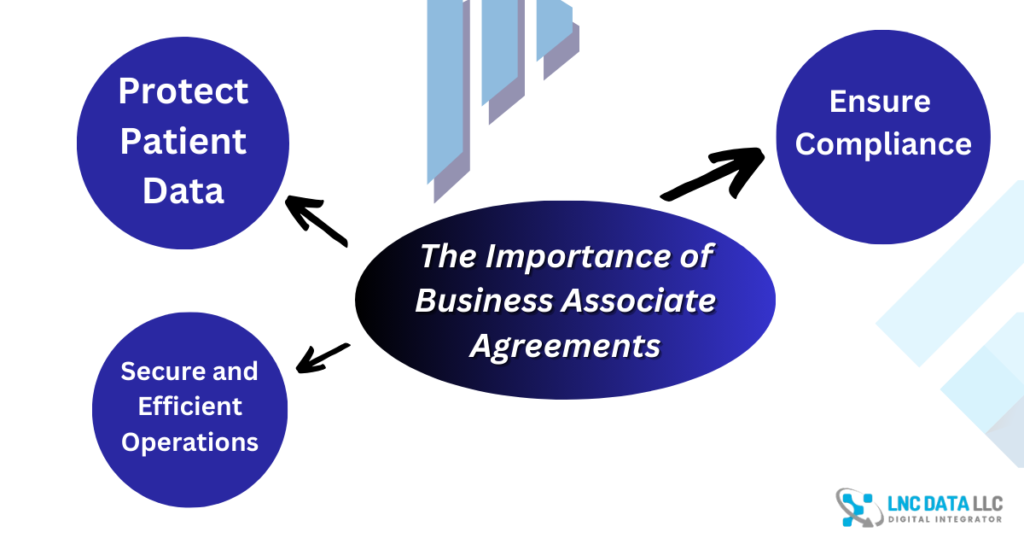
Business Associate Agreements in dental IT services are very important because they ensure that business associates working with dental offices fulfill specific security procedures for handling Protected Health Information. The Business Associate Agreement helps dental IT services and dental clinics protect themselves against cybersecurity risks and data breaches.
What is a Business Associate Agreement or BAA?
According to HIPAA regulations the covered entity should use Business Associate Agreement or BAA whenever it uses services of Business Associate, IT service professionals, health insurance companies, attorneys or third-party administrators. The objective of BAA is to ensure that any party who performs activities on behalf of dentists or covered entities should handle the PHI according to the laws to protect the data. Business Associate Agreements are crucial in dental IT services to assure compliance.
A BAA should be in written form and must include specific terms according to HIPAA regulations. These terms are necessary to maintain compliance with federal privacy regulations. According to these, Business Associates are not permitted to use PHI freely. They can use it only according to the written agreement and the law. Business Associates or IT professionals must also safeguard the data to prevent unauthorized use and report any disclosure or data breach, of which they become aware, that is not covered in the agreement. It is also the responsibility of the Business Associate or IT professional to ensure that subcontractors agree to the same conditions if they are handling PHI. Dental IT services must pay careful attention to these aspects of the agreement.
What Should a BAA Include?
Business associate agreement should clearly define how the business associate can use PHI. For example, are they using PHI for treatment, income, or healthcare procedures.
How the business associate should safeguard PHI. For example, Business associates should apply administrative, physical, or technical safeguards. It must also specify how the BA can disclose PHI to other parties, such as subcontractors or law enforcement agencies, especially in dental IT services.
Additionally, the BAA should define the duration of the agreement and the requirements to terminate the contract. The agreement should give the dentist the right to audit the BA’s compliance with HIPAA regulations and specify how the BA will notify the Covered Entity of any data breaches.
If the BA has subcontractors, the BAA should require the BA to have agreements with them to maintain compliance. It must also address the BA’s liability for any HIPAA violations and include an indemnification clause to outline how the organization will be compensated in case of a data breach caused by the BA. While not explicitly required under HIPAA, an indemnification clause is considered a best business practice to ensure quicker resolution of issues. Furthermore, the agreement should specify the governing law applicable to the agreement and outline methods for resolving disputes between the parties. Thus, ensuring proper business associate agreements in dental IT services is critical.
Consequences of Non-Compliance
Covered Entities and Business Associates are both subject to serious effects of non-compliance with HIPAA regulations. Failure to follow these rules can result in severe civil and criminal penalties. These may include considerable fines, required corrective actions to address the violations, and in more severe cases, imprisonment for individuals responsible for the breaches. Compliance is critical to avoid these repercussions and ensure the protection of sensitive health information in dental IT services.
Conclusion
In conclusion, Business Associate Agreements (BAAs) play a critical role in ensuring compliance and data security in dental IT services. These agreements establish clear guidelines for the proper use and protection of Protected Health Information (PHI), safeguarding both dental practices and their IT partners from potential risks such as data breaches and HIPAA violations. By implementing BAAs, dental offices can build trust with their patients, maintain regulatory compliance, and protect sensitive information, ultimately fostering a secure and efficient healthcare environment. Effective business associate agreements in dental IT services are integral for overall security and compliance.